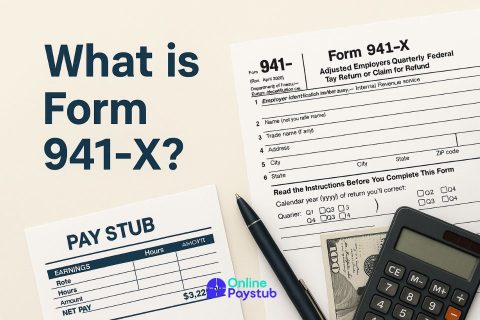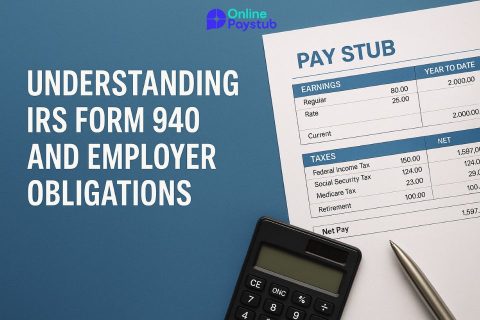California’s proposed “exit tax” has raised concerns among residents planning to relocate outside the state. While technically not an official exit tax yet, proposed legislation and existing tax codes create ongoing tax obligations for individuals who leave but maintain financial ties to California.
In 2025, understanding how California taxes income, property, and wealth even after a resident moves out is critical. Whether you are selling California property, closing a business, or simply changing your residency, staying compliant with California tax laws will help you avoid penalties.
What Is the California Exit Tax and Who Does It Affect?
The term “California Exit Tax” generally refers to the state’s efforts to continue taxing residents on California-sourced income after they move. It mainly impacts:
- Individuals with California property holdings
- Former residents earning income from California businesses
- High-net-worth individuals subject to the proposed wealth tax (Bill AB 2088)
Even after establishing residency elsewhere, you may still owe taxes on income linked to California-based assets, such as rental properties, business operations, or capital gains from property sales within the state.
When Will the California Exit Tax Go Into Effect?
As of 2025, no official California Exit Tax is fully enacted through new legislation. However:
- Current laws (like Revenue and Taxation Code 17591) already enforce taxes on California-sourced income for non-residents.
- Proposed legislation like Assembly Bill 2088, if passed, would formalize a more comprehensive exit tax structure targeting high-net-worth individuals.
There is no definitive “effective date” yet for an official wealth exit tax. However, individuals who are planning to leave California should proactively review their financial ties and tax exposure under existing regulations.
How Leaving California Could Impact Your Taxes
Relocating out of California does not automatically end your state tax obligations. Moving could affect your taxes in several ways:
- Capital Gains Taxes: Profits from California real estate sales remain taxable after your move.
- Business Income: Earnings from California-based business activities continue to be taxed by the state.
- Source Income: Royalties, rental income, and other California-sourced income are subject to state tax regardless of your residency.
- Wealth Tax Exposure: If wealth taxes are introduced, there could be attempts to assess taxes for several years post-move, particularly for individuals exceeding asset thresholds.
Properly severing all financial and legal ties—such as selling California assets and changing residency documents—can help minimize long-term tax exposure.
Does California Tax Real Estate Sales When You Move?
Yes, California continues to tax capital gains from the sale of real estate located within the state, even after you move. If you sell California property after relocating to another state, the gain is considered California-sourced income and remains subject to California state income tax. Properly timing the sale or utilizing exemptions, such as the primary residence exclusion, may help reduce your taxable amount.
How the California Wealth Tax Could Follow You
If enacted, California’s proposed Wealth Tax (Bill AB 2088) could apply to former residents for up to ten years after they leave the state. The tax would target individuals with worldwide net worth exceeding certain thresholds. Although currently not in effect, the bill sets a precedent for tracking and taxing former residents based on their historical ties to California.
Understanding Franchise Tax Board Rules for Exiting Residents
The California Franchise Tax Board (FTB) evaluates residency status using multiple factors, including where you work, live, and maintain financial accounts. Even after relocating, you could be classified as a California resident if you retain significant ties to the state. To formally end your California residency, you must establish clear connections to your new state and sever economic ties with California.
Tax Implications for Moving Out of California
Moving out of California does not automatically eliminate your tax obligations. Income from California-based sources — including wages, rental income, and business profits — remains taxable. If you have ongoing financial interests in the state, you will need to file a nonresident California tax return and report applicable income, even after establishing residency elsewhere.
California Property Sales and Exit Tax Considerations
Selling California property can trigger significant tax consequences. Capital gains on real estate sales are treated as California-sourced income. Whether you sell before or after your move, these gains must be reported and taxed appropriately. It is advisable to consult a tax advisor regarding timing strategies and available deductions to minimize the impact.
Steps to Take Before Relocating to Avoid Tax Penalties
Before moving out of California, consider the following steps to avoid future tax complications:
- Sell or transfer California property prior to relocation when possible.
- Terminate business operations or separate income-generating ties within the state.
- Update your legal documents (driver’s license, voter registration) to reflect your new residence.
- Document your move carefully, including new housing contracts and utility bills.
- Consult a tax professional to create a transition plan and ensure compliance.
Proactive measures can help you formally establish your new residency and reduce your exposure to ongoing California tax obligations.




No comments to show.